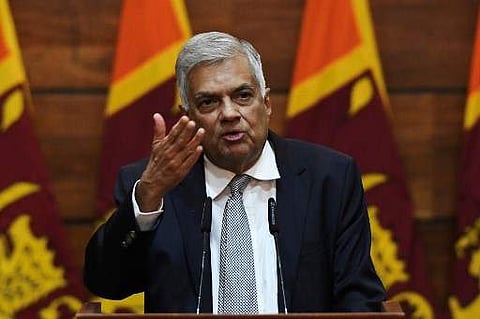

COLOMBO: Cash-strapped Sri Lanka is seeking urgent United Nations help to build a stockpile of essential foods, the prime minister's office said Friday, after authorities warned of looming starvation.
Acute shortages of food, fuel and other essential goods, along with record inflation and rolling blackouts, have inflicted widespread misery in the island nation's unprecedented economic crisis.
Scarce supplies of petrol, diesel and fertiliser have made it difficult for farmers to grow crops, while the agricultural sector is still reeling from a disastrous organic policy that kneecapped yields last year.
The UN Food and Agriculture Organization is now planning a "food crisis response plan" to shore up reserves and will also offer more funds for urban agriculture, Prime Minister Ranil Wickremesinghe's office said in a statement.
Parliamentary speaker Mahinda Yapa Abeywardana warned in April that Sri Lanka was facing "very acute food shortages and starvation".
Around half of Sri Lanka's rice production was lost last year, and the latest cultivation season which started last month has been disrupted because of fertiliser shortages.
Sri Lanka's painful economic crunch was sparked by a shortage of foreign currency, leaving traders unable to pay for critical imports, including fertiliser.
The government has since defaulted on its $51 billion foreign debt and is seeking an International Monetary Fund bailout.
Most of Sri Lanka's fertiliser is imported, but last year President Gotabaya Rajapaksa announced a ban on foreign agrochemicals as the country's foreign reserves began running out.
The policy was billed as an effort to fashion Sri Lanka into the world's first 100 percent organic farming nation, but was abruptly halted after farmers left their fields fallow.
The head of the agricultural ministry was promptly sacked last December after warning that the scheme could lead to a famine by the end of this year.